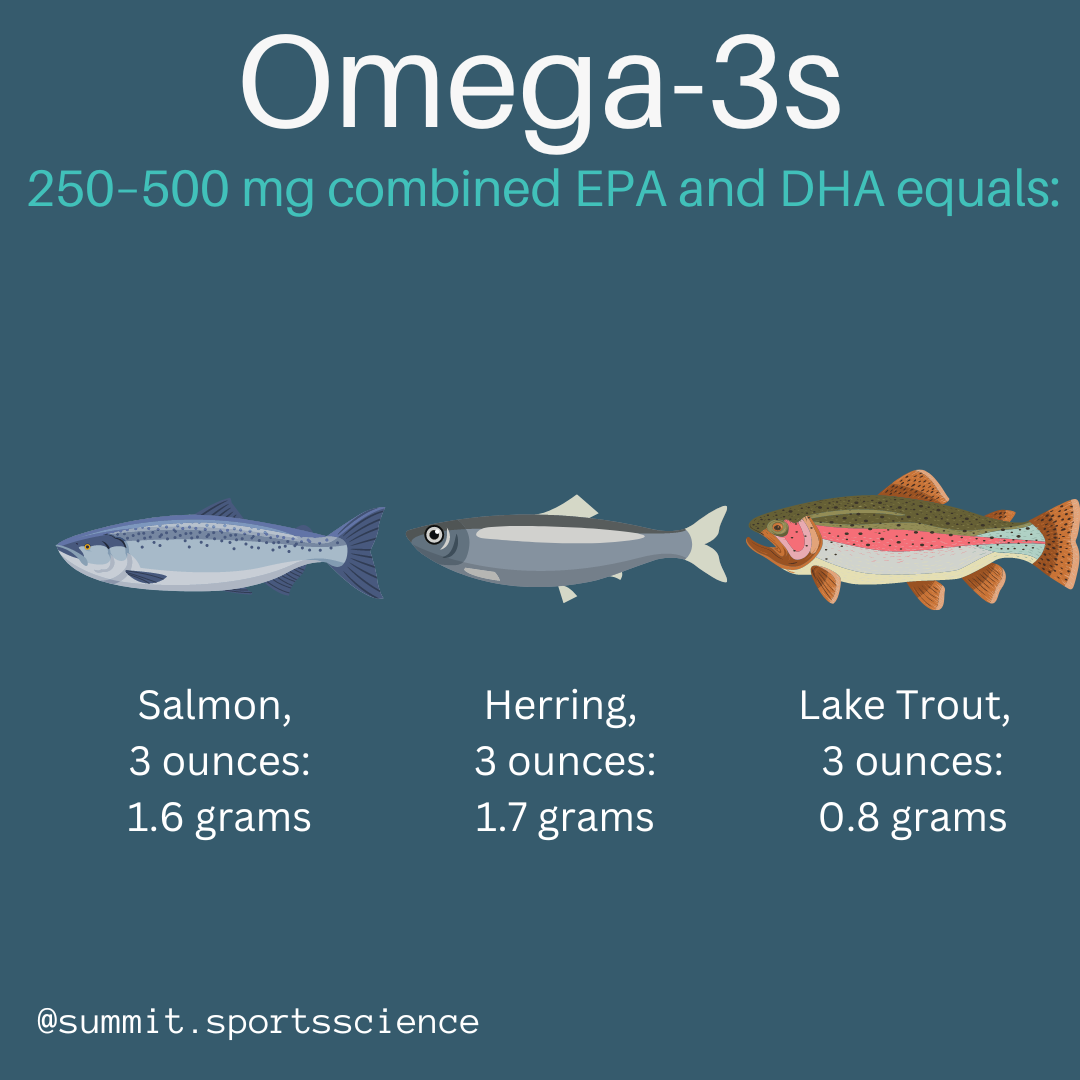What are Omega-3s & Why Do We Need Them?
What are Omega-3s?
Omega-3s are comprised of essential fatty acids, including ALA (alpha-linolenic acid), EPA (eicosapentaenoic acid), and DHA (docosahexaenoic acid). These essential fatty acids are primarily found in fish, tree nuts, and some plant oils.
The benefits of Omega-3s
Omega-3s provide great benefits, some of which include:
Promote heart health: Omega 3 fatty acids can help reduce inflammation, lower blood pressure, and decrease the risk of heart disease.
Supports brain function: Omega 3s are important for brain health, including memory and cognitive function.
Reduces inflammation: Omega 3s can help reduce inflammation throughout the body, which may decrease the risk of chronic diseases like arthritis and certain types of cancer.
Promotes eye health: Omega 3s are important for eye health and may help reduce the risk of age-related macular degeneration.
Where can Omega-3s be found?
Omega-3s are primarily found in the following:
Fatty fish: Salmon, tuna, sardines, and mackerel are high in omega-3s. Did you know that Salmon is an Endurance Superfood?
Nuts and seeds: Flaxseeds, chia seeds, and walnuts are great sources of omega-3s.
Plant oils: Canola oil, soybean oil, and flaxseed oil are rich in omega-3s.
Fortified foods: Some foods, such as milk, eggs, and yogurt, are fortified with omega-3s.
Supplements: Omega-3 supplements are also available in the form of fish oil or krill oil capsules.
Docosahexaenoic Acid (DHA)
Docosahexaenoic acid is an omega-3 fatty acid that is a major component of the brain and the retina of the eye. It is important for brain development and has been linked to improved cognitive function and a decreased risk of certain brain disorders.
Eicosapentaenoic Acid (EPA)
Eicosapentaenoic acid) is an omega-3 fatty acid that has anti-inflammatory properties. It can help reduce inflammation throughout the body, which may decrease the risk of chronic diseases like arthritis and certain types of cancer. EPA has also been linked to improved heart health and cognitive function.
alpha-Linolenic Acid (ALA)
alpha-Linolenic acid is a type of omega-3 fatty acid found in plant-based foods such as flaxseeds, chia seeds, walnuts, and soybeans. It is important for brain function, reducing inflammation, and maintaining healthy cells. However, unlike other types of omega-3s like EPA and DHA found in fatty fish, ALA omega-3s have to be converted by the body into EPA and DHA to be used effectively. This conversion process can vary depending on factors like genetics, diet, and overall health. Therefore, incorporating a variety of food sources of omega-3s can help ensure adequate intake of all types.
Common sources for Omega-3s
Omega-3s for athletes
Athletes may find Omega-3’s special anti-inflammatory properties to be greatly beneficial. Omega-3 fatty acids may also help improve joint health and reduce the risk of joint pain and stiffness in athletes. Finally, Omega-3s can stimulate muscle protein synthesis, leading to increased muscle growth and repair. While there are no special intake recommendations for athletes, it is important to source your Omega-3s from whole foods. If you must use a supplement, ensure that it comes tested by a third party. Likewise, it is important to follow proper nutrition recommendations and to be weary of trendy fad diets. For science-based information on nutritional topics like Omega-3s, speak with a Certified Nutrition Coach today!
Adequate Intake of Omega-3s
Source: NIH
About Summit Sports Science
Hey! I'm Gabe. I obtained my ASc degree in kinesiology and am currently pursuing my BSc in Dietetics to become a Registered Dietitian (RD.) Furthermore, I am licensed by both the National Academy of Sports Medicine and the United Endurance Sports Coaching Academy as a sports nutritionist. I started Summit Sports Science to deliver nutrition coaching that’s based on science, not pop culture. I aim to assist my athletes in acquiring the nutritional tools and knowledge necessary to optimize their performance. Whether you are training for your first marathon, or are a full-time athlete looking to optimize your nutrition, I invite you to apply to work with me..



